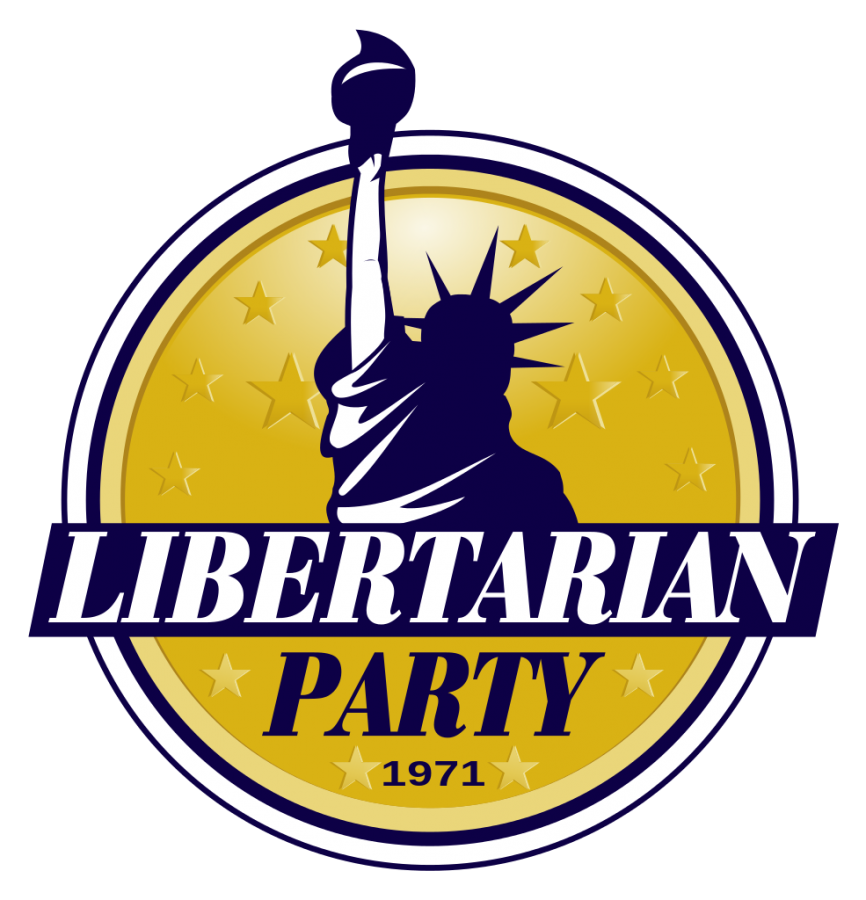Why the Future Looks Bright for the Libertarian Party
March 14, 2017
Founded in his home in 1971, David F. Nolan’s Libertarian Party has grown to be a full functioning political party in the United States. However, despite being the third largest in American politics, the Libertarian Party still remains largely unnoticed by the voter population. However, as the Trump administration takes over and the scars of the 2016 Presidential Election begin to heal, the Libertarian Party has its time to finally shine.
What makes a Libertarian? The answer is pretty simple. They’re called “liber”tarians (“liber” being the latin root word for free) for a reason. They’re considered the modern day classical liberal; the liberalism encouraged by John Locke and economic liberalism written about in the works of Adam Smith.
Even though they share the same root as a Liberal Democrat, Libertarians stray far from the Democratic Party. And no, they’re not Conservative Republicans either. They’re actually a mixture of both. They believe in the social liberties fought for by Democrats, such as LGBT rights, women’s rights, transgender rights, immigration etc, while also believing in the economic policies of the Republicans, such as less regulation of business and less taxation.
Most of all, Libertarians believe in small government above all else. No, we’re not talking about the “small government” that Republicans preach. (Republicans sure do love to use the power of big government to tell you who you can’t marry and what a woman can do with her body!) They actually believe that the government should play the smallest role as possible in your life.
A more detailed breakdown of their beliefs are as follows: (Summarized from 2016 Libertarian Pres. Candidate Gary Johnson’s Website)
Abortion:
Women have the right to choose, and the government should stay out, but stop funding Planned Parenthood.
Drug Use:
Biggest supporters of legalization of marijuana. Too many arrests and full prisons on non violent drug charges. Other drugs should still remain illegal, but offer help rather than incarceration. Drug use is a disease, not a crime.
Environment:
Climate is changing, but we don’t need regulations or laws. EPA should continue to do its job. People, not lobbyists, should determine the green future.
Religious Freedom:
We should protect religious liberties, but not the right for religion to be used to discriminate. “Look at Utah” and how it protects LGBT rights, as well as common sense religious liberty. Politicians have used religion to twist policies.
Immigration:
“The only thing a big wall will do is increase the size of the ladders, the depth of the tunnels, and the width of the divisions between us.” We should focus on fixing immigration, and background checks, not trying to keep good people out.
Taxes:
IRS is a mess. Too many loopholes and people taking advantage of our system. We should not tax how much people make, but how much people spend, because everyone has the right to savings. No taxing necessities.
Debt:
Democrats AND Republicans are to blame. Our debt is the most dangerous thing to our security. We should cut spending, and not increase taxes. First act as a Libertarian president would be to pass a legitimate budget, no fake cuts.
Civil Liberties:
Take the government out of our daily lives and our bedrooms. Get back to protecting our liberties, not restricting them. LGBT rights should be guaranteed. Do whatever you want, just don’t harm others.
Jobs:
Government does not create jobs, a free market does. Government should only regulate safety, not the economy.
Despite some Americans who pledged to vote third party in the 2016 election, Garry Johnson received less than 4% of the popular vote. This can be a result of Johnson’s actions, such as faking a heart attack during a marijuana debate and his famous “Uh, Leppo?” moment. This gave the Libertarians a rather immature look, and it was evident in the drop in polls.
However, despite this, the votes were much greater than previous Libertarian candidates, a jump of 2.3% of popular votes when compared to last year. This shows that despite their shortcomings, the 2016 election has greatly helped the Libertarian brand.
The 2016 Election brought out the worst in politics. Scandals surrounding both candidates, and the Democrat leaks have shown how corrupt political parties are. And with the election of Donald Trump, with his anti-establishment rhetoric, the possibility of a huge boost in Libertarian support is possible.
Already, the Trump administration is surrounded with controversy. With the resignation of Michael Flynn to Trump and his “alternative facts”, many Americans are distrustful of the administration. In a series of town hall meetings, many Republican leaders are taking hits from their own support base for supporting Trump.
What the future holds in store for the Libertarian Party could be bright. If Trump continues to carry on his current line of rhetoric, he may alienate moderate Republicans. And instead of turning entirely Democratic, they may turn towards the Libertarian Party (both Johnson and his VP pick Bill Weld were Republicans turned Libertarian).
Many voters, who still taste the bitterness of the 2016 election may turn to a 3rd Party Candidate. In 2016, many had pledged to back up a third party, and many saw a growth in their support. However, this was not enough to get debate privileges for the candidates.
In 2018, either Trump must have had an amazing term (which honestly seems nearly impossible), or the Democrats must pick a candidate capable of reversing what corruption the leaks showed, in order to save the reputation of their parties. If not, then we’ll see a larger jump in support for third party candidates, especially the Libertarians by yet more alienated voters.
